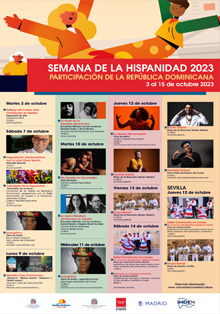Jesús González Mateos
Editor of Aquí Europa y Canal Europa
The III Conference of the European Political Community held in Granada has had the Ukrainian president, Volodimir Zelenski, as the protagonist, and the absences of the Turkish president, Recep Tayyip Erdogan, and the prime minister of Azerbaijan, Ilham Alyiev.
President Macron’s invention for managing the waiting room of the European area that wants to join the European Union, the so-called European Political Community, held its third meeting in Granada, on the occasion of the Spanish presidency of the EU. On the basis of meetings, the body, which still has no structure or clear rules of the game, is clarifying its usefulness and also the states that are truly interested in participating. It is clear that the countries that are in the process of negotiating to join the club of 27 cannot be absent from a table where the European institutions and the heads of government of their member states are present.
That is why the absence of Turkish President Erdogan is a clear gesture of protest and realism, as no one within the EU believes in Turkey’s accession. Therefore, this onion layer surrounding the European Union, with countries from the Balkans, those bordering Russia and the Caucasus, is becoming a second gear for sharing dialogues and debates on the main issues affecting the continent.
At a time of continental war, the mere presence of the assaulted president, Ukraine’s Zelensky, makes it necessary to focus on his demands and the Community’s response. And if the Ukrainian leader has once again achieved anything, it has been the unanimous support of a Europe that wants to share a project of law and order. Europe that wants to share a project of law, freedoms and democracy. Once again the isolation of Putin’s Russia has been revealed, and this time probably more blatantly and blatantly than the other two times. That is not to say that the position on the course of the war is unanimous on the part of all those present. There is no doubt about Ukraine’s membership of our EU world, but when it comes to resolving the conflict, more and more voices are whispering the need for a peace agreement.
The intended icing on the cake of the Granada Conference was the meeting between the leaders of Armenia and Azerbaijan, who are at war over the Nagorno-Karabakh enclave. Bringing about a political agreement and pacifying the territory would have enhanced the usefulness of these meetings and, above all, would have given an important punch to the table on the international stage by demonstrating the EU’s capacity to be a geopolitical protagonist. In the end, however, Azerbaijani Prime Minister Ilham Alyiev was absent, and despite the intense diplomatic activity, the photo of success was not possible. Nonetheless, a further step has been taken towards clarifying the potential of this European Political Community, which is gradually sifting through the participants and deciding on the topics for dialogue. Beyond the gestures, time will tell whether Macron’s idea benefits the project of European construction.
For the moment, it survives.
© aquieuropa / Todos los derechos reservados






